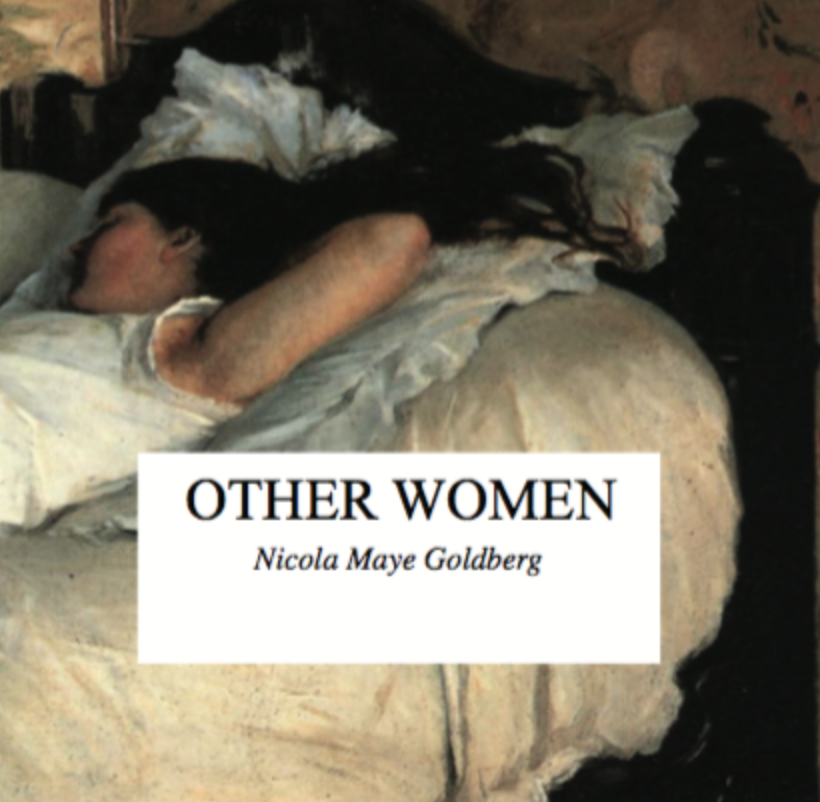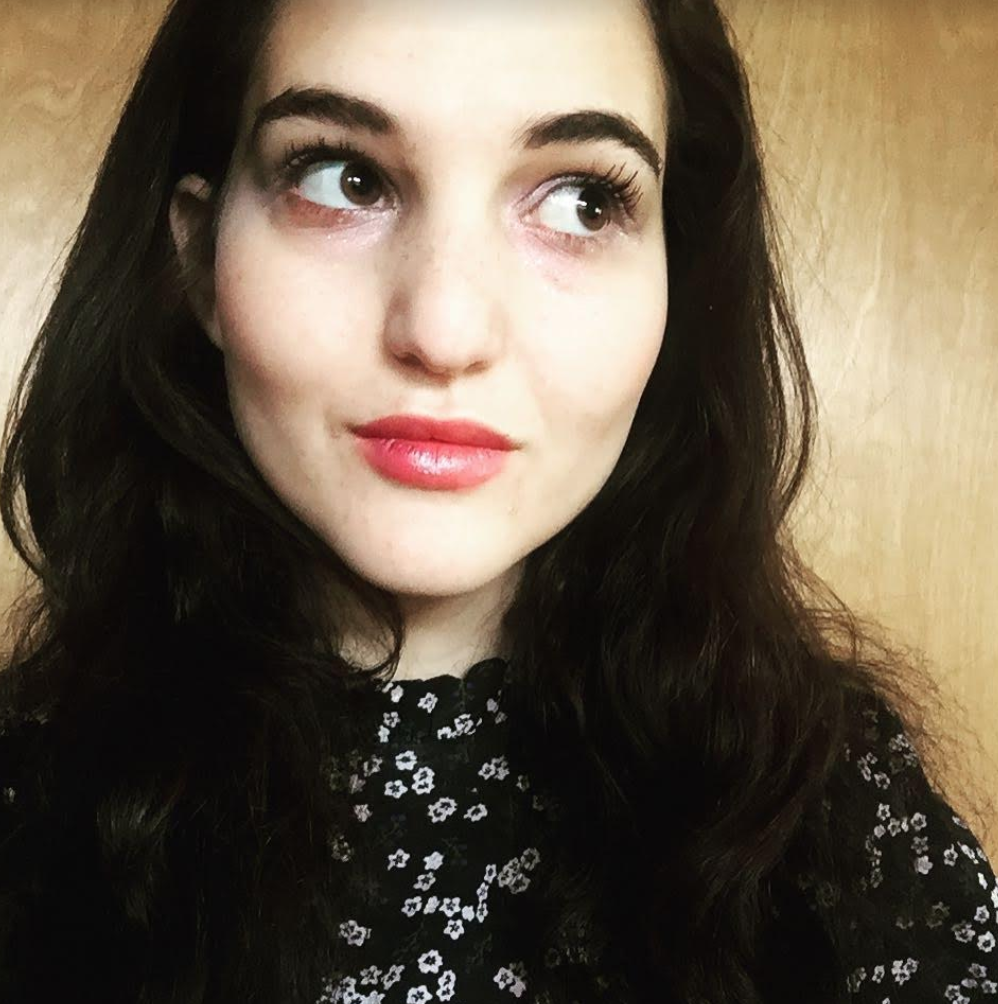BY LISA MARIE BASILE
OTHER WOMEN is a novel by Nicola Maye Goldberg. You can read an interview with her here.
About the book: After dropping out of college, a young woman wanders through New York both invisible and vulnerable, studying the city’s strong magic and longing for a man she knows will never love her back. She thinks she finds salvation when Charlotte Herzfeld, the young wife of a successful businessman, hires her as a live-in nanny to accompany the family on their trip to Berlin. As the After dropping out of college, a young woman wanders through New York both invisible and vulnerable, studying the city’s strong magic and longing for a man she knows will never love her back. She thinks she finds salvation when Charlotte Herzfeld, the young wife of a successful businessman, hires her as a live-in nanny to accompany the family on their trip to Berlin. As the Herzfelds begin to crack under the weight of their secrets, she finds herself in a more precarious position than ever before. Both thoughtful and restrained, Goldberg’s prose examines the painful obsession that so often accompanies the confusing lust of youth. Herzfelds begin to crack under the weight of their secrets, she finds herself in a more precarious position than ever before. Both thoughtful and restrained, Goldberg’s prose examines the painful obsession that so often accompanies the confusing lust of youth.
We stayed up until dawn. I watched the shadows of your eyelashes move rapidly across your cheeks. We got under the covers and you pulled me close to you, muttering something about goose-bumps. I tried to sleep beside you, but your heart beat so fast it bothered me. You couldn’t believe how small I was, how cold.
In the morning you smoked a cigarette, pretending not to look at me.
I dressed myself and went to run a bath. As I kneeled on the blue tile floor, checking the temperature of the water, I had a strange feeling, as if I was utterly pure, as if I had been scrubbed clean from the inside. There was no word for it: the only one I could think of was cauterized. The second I stepped into the bathtub it was gone.
As I was getting dressed, you said: this has to be a secret, and I nodded.
“No, really,” you said. “It has to be.”
I pinky-promised. It might have seemed silly, but when I was a kid one of my friends told me that if you broke a pinky promise God would hate you. I didn’t believe that any more, strictly speaking, but I did attach great importance to that small vow.
You never once responded to me with blank stares or stunned silence
or awkward, painful laughter. There seemed to be nothing I could say that would convince you I was too intense, too insane.
When I told you about the earring I left in your apartment, you laughed and said it was a nutty thing to do, definitely, but that you were glad I’d done it. I told you about my childhood obsession with Joan of Arc, of my totally irrational but somehow consuming fear of being burned at the stake, and you told me about a beautiful blue and white church in Mexico dedicated to Saint Lucy, who you said was your personal favorite. You promised, blithely, to take me there.
Once when we were having sex at my apartment, we kept almost falling off the tiny, unmade bed.
“What’s wrong with us?” I laughed, and you said, “I’ve been wondering that for a long time,” as if the same thing might be wrong with both of us. I didn’t think that was true, but it made me happy that you might.
Once you told me I had a perfect mouth and I glowed for days. It was such a specific compliment, and you said it with deliberation, as if you had thought about my mouth for a long time before settling on the word “perfect.” If you had ever told other girls they had perfect mouths - and I wasn’t stupid, I knew you had - mine was still the most perfect. I don’t know where this certainty came from.
After work, Kayla and I would come back to our apartment, get high and sit on the floor, and listen to songs sung by women with hearts even weaker than our own.
Weak hearts, but at least they made something out of it. I couldn’t sing, couldn’t paint, couldn’t even write poems anymore.
What I did was draw, on old newspapers and flyers, whatever I felt like, pigs and mountains and babies with delicate faces. You enjoyed my drawings. You kept them folded inside your second-favorite notebook. You showed them to your friends, and didn’t understand why I was angry. I thought you were making fun of me.
We never liked the same music. Once, when we were alone, I put on Etta James, and you just shook your head.
“These torch songs, they’re just lullabies for ugly girls,” you said. “They make it seem like not being loved is just as romantic as being loved.”
“It isn’t?”
“Well, what do you think?”
I shrugged. I didn’t feel like I had enough data to say for
sure, then.You pulled me toward you. I noticed that your pants were too big. You looked ridiculous - why not just buy a pair that fit you? Maybe you thought they looked good. Maybe Josephine did.
I was obsessed with the gap between your front teeth. It was not very large and I liked to think I was one of the few people who noticed it. It reminded me of how quickly your smile had turned into a kiss.
We measured our hands against one another. You squeezed mine tight and flipped me over. Around you, it felt terribly natural to be on my back. I was like a dog that was afraid.
Nicola Maye Goldberg is the author of Other Women (Sad Spell Press, 2016) and The Doll Factory (Dancing Girl Press, 2017). She is a graduate of the fiction program at Columbia University. She lives in New York City.

































